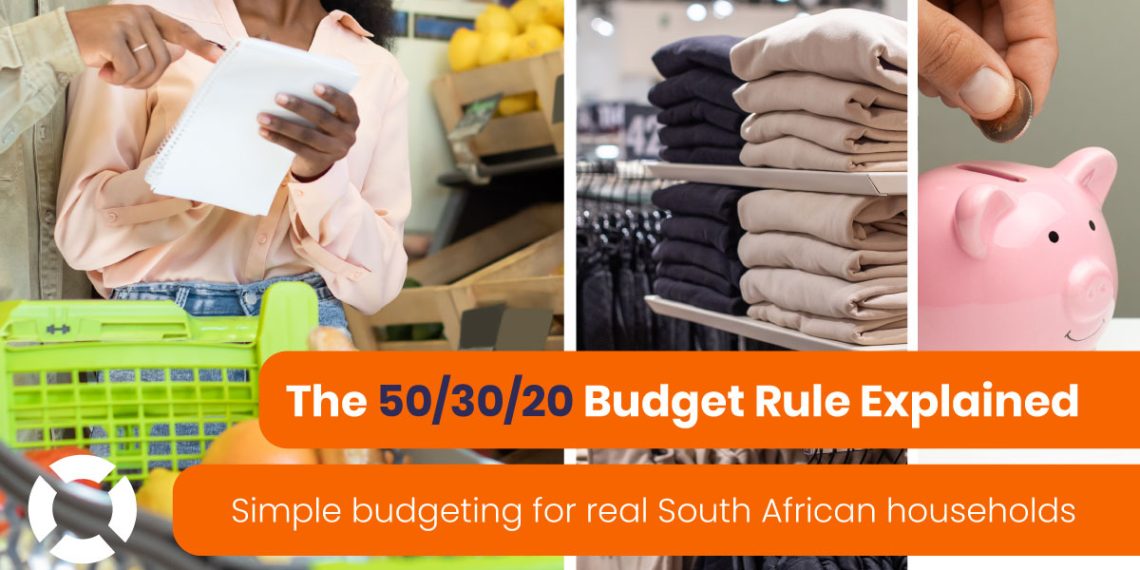July is Nationwide Financial savings Month and that is the proper time to get actual about your cash. In case your funds really feel stretched, your debt is weighing you down, or there may be month than there may be cash, you aren’t alone. However there’s a manner ahead beginning with one of many best strategies, strongest budgeting instruments used worldwide particularly the 50/30/20 rule.
This straightforward budgeting framework has helped hundreds of thousands of individuals throughout the globe take management of their cash, steadiness their wants and construct long-term monetary stability. It’s particularly highly effective for South African households trying to reset and regain management in a troublesome financial local weather.
What’s the 50/30/20 Rule?
It’s a easy, no-stress plan to divide your month-to-month revenue into three sensible buckets, particularly:
- 50% for Wants: Important bills like lease, meals, electrical energy, transport and minimal debt funds.
- 30% for Desires: Life-style spending resembling eating out, leisure and non-essential purchases. Suppose takeaways, Netflix, that new pair of footwear you’ve been eyeing
- 20% for Financial savings & Debt Reimbursement: Constructing an emergency fund, rising financial savings or paying off debt quicker.
It’s all about steadiness: dealing with your tasks, having fun with your life and nonetheless getting ready for the longer term.
Adapting the Rule When You’re in Debt
For a lot of South Africans, debt eats up greater than 60% of their revenue. The 50/30/20 rule might really feel inconceivable… however that’s precisely when it turns into strongest.
Right here’s methods to tweak the rule if you’re behind on funds or below debt evaluate:
- Cut back “needs” to 10–15% or much less.
- Redirect these funds to the financial savings/debt class to extend debt reimbursement or emergency fund contributions.
- When you’re below debt evaluate or working with a registered debt counsellor, your reimbursement plan ought to already replicate an analogous prioritisation.
Actual-Life Instance: The Rule in Motion
Incomes R10,000/month:
- Wants (50%) = R5,000 -> Hire, meals, transport, electrical energy, minimal debt
- Desires (30%) = R3,000 -> Takeaways, leisure, DStv, hobbies
- Financial savings/Debt (20%) = R2,000 -> Emergency fund + additional on debt repayments
When you’re behind on debt, minimize needs right down to R1,000 and improve your financial savings/debt line to R4,000/month. This helps scale back curiosity quicker and provides you peace of thoughts.
Unsure methods to test your credit score report or perceive your credit score rating? Examine your free credit score report at report.debtrescue.co.za
What does it imply to be below debt evaluate?
Debt evaluate is a authorized lifeline for South Africans who’re drowning in debt. A registered debt counsellor assesses your funds and negotiates a decreased reimbursement plan along with your collectors. You’ll be shielded from authorized motion and begin your journey towards changing into debt-free with out shedding your property.
When you’re overwhelmed, debt evaluate would be the strongest software you haven’t thought-about.
Life After Debt Overview: Utilizing the 50/30/20 Rule to Keep Debt Free
The top of your debt evaluate isn’t the tip of your monetary story, it’s the start of a brand new one.
That’s the place the 50/30/20 rule will be very useful for all times after debt evaluate:
- Rebuild your financial savings cushion.
- Create monetary stability.
- Obtain monetary freedom by planning.
You may also be asking, how lengthy after debt evaluate can I apply for credit score or purchase a automobile? When you’re issued a clearance certificates and your identify is faraway from the credit score bureaus, you can begin making use of once more however with warning.
Budgeting is Not a Limitation
Whether or not you’re simply beginning out, below debt evaluate, or lastly debt-free, the 50/30/20 rule may help you’re taking cost of your cash, your mindset, and your future.
Let this Financial savings Month be your turning level.
At Debt Rescue, we’ve been serving to South Africans navigate monetary stress for the reason that very starting of the business. When you’re caught, we’re right here to information you with skilled recommendation, authorized safety and actual options.









